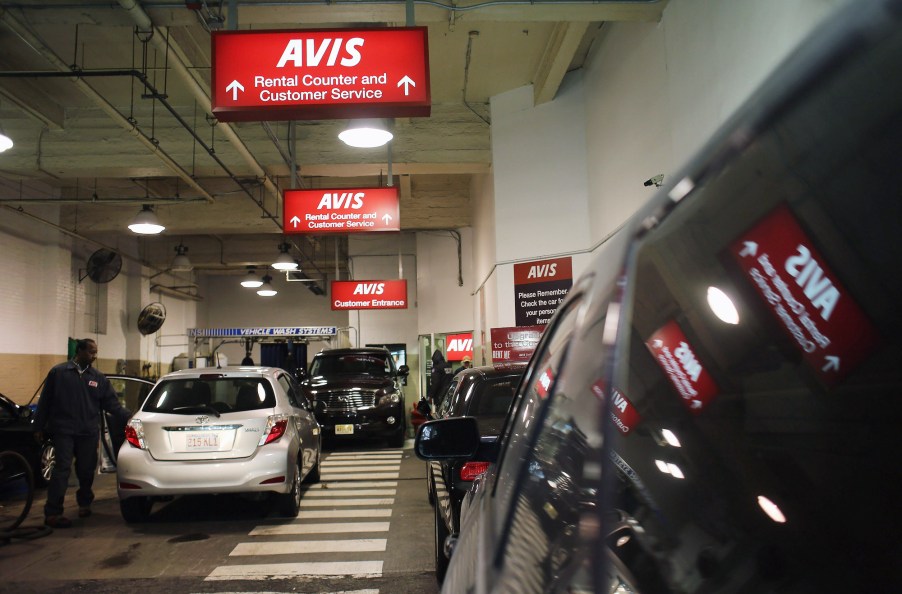
Is It Cheaper to Rent or Buy a Car if You Use It Only on Weekends? Consumer Reports Weighs in
It’s a question you might’ve asked yourself since the pandemic forced many of us to stay home and cut back on spending: Is it cheaper to rent or buy a car if you use it only on weekends? A viewer recently posed that question to the hosts of Talking Cars, Consumer Reports’ video podcast. And their answer offers some interesting insights into car-sharing solutions.
Consumer Reports explains why renting can be cheaper than buying
In Episode 296 of Consumer Reports‘ video podcast, the co-hosts discuss this viewer message: “I don’t have [any] use for a car during the week, but on the weekends I’m going into the outdoors to hike and enjoy nature, so I currently rent a car to use on weekends. Does this make financial sense?” The viewer added that it feels like a waste of money to buy a car only to have it sitting in the garage Monday through Friday. However, rental costs also seem pricey.
Consumer Reports deputy auto editor Jon Linkov says, “You’re doing it right.” He explains that by renting a car, you’re paying for it only when you use it. Not only that, but you’re also getting a full tank of gas, you don’t have to worry about paying for maintenance, nor do you have to be responsible for auto insurance and annual tax payments. Additionally, he mentions Zipcar is one of the most affordable and customizable options. A subsidiary of Avis Budget Group, Zipcar is unique in that it provides members with vehicle reservations that are billable by the minute, hour, or day.
Linkov states, “You’re not paying for registration, you’re not paying for inspections, you’re not paying sales tax, you’re not paying to store the car, you’re not paying to fuel the car, you’re not paying for the car … All that money you’re not spending.”
He further explains that if you’re paying $100 to $200 per weekend and you do this only a couple of weekends a month, it adds up to only a few grand per year to rent. “We haven’t even gotten into oil changes, tire replacement, batteries, damage, any of that type of stuff,” Linkov says of car ownership costs.
What you should know about car-sharing services like Zipcar
Zipcar offers its members access to a free mobile application available for Android and iOS devices. You can also make reservations online or by phone at some places such as hotels. Make them anytime, day or night; you can book immediately or up to a year in advance. Zipcar says it charges new members a one-time $25 application fee when they apply for membership. Businesses pay a one-time $75 account setup fee. Annual membership costs $70.
Trips lasting 24 hours or less get a free 180 miles, with trips lasting over 24 hours receiving more miles. Zipcar charges members an additional 58 cents per mile when the reservation ends or if they exceed the maximum free mileage provided. Late returns are charged $50 per half-hour on top of vehicle usage charges, so it’s a good idea to have your trip well-mapped-out.
As Consumer Reports’ Linkov mentioned, Zipcar covers costs such as fuel, maintenance, insurance, and even parking. Other cool features include automated keycard access that unlocks the vehicle. And the mobile app honks the vehicle’s horn so that you can find it.
Car-sharing versus car rental: What are the differences?
Car-sharing has been around since the 1970s, with the more novel form of car-sharing model appearing in the early 2010s. Nevertheless, many people continue to mistake it for traditional car rental. Also known as “car clubs,” car-sharing services allow individuals and organizations to have flexible access to vehicles without ownership constraints.
Some key differences between car-sharing and renting are the flexible time frames — by the minute, hour, or day. Rental car agencies charge a flat fee, usually by the day. Car-sharing prices remain fixed, no matter how far in advance you book. On the other hand, car rental prices fluctuate according to demand. The car-sharing membership application process makes it simple to sign up.


